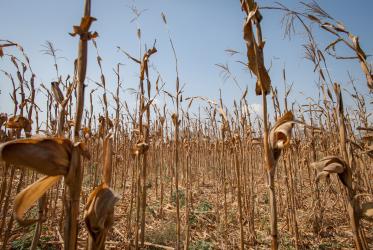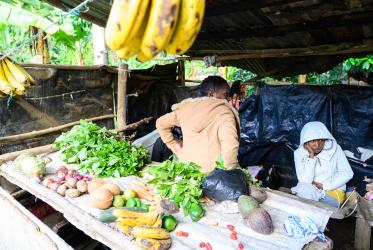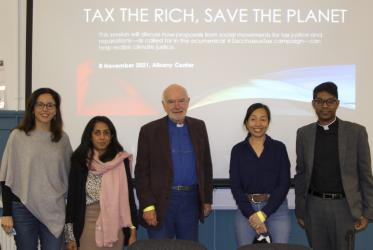When God created men and all the creatures of the earth, he placed Adam in the Garden of Eden. God planted a garden eastward in Eden and he made it to grow every tree that is pleasant to the sight and good for food (Genesis 2:8-9). This may be considered as the foundation on which all other paradigms on food justice can be based. After creating Adam and Eve God made provision for their feeding and sustenance.
Access to food is a human right: “All people and at all times, must have physical and economic access to sufficient, safe and nutritious food to meet their dietary needs and food preferences for an active and healthy life” (FAO, World Food Summit Plan of Action, 1996). Access to nutritious food is a matter of justice, and anything to the contrary shall be unveiled and publicly denounced by the Churches. “Is not this the fast that I choose: to lose the bonds of wickedness, to undo the thongs of the yoke, to let the oppressed go free, and to break every yoke? Is it not to share your bread with the hungry, and bring the homeless poor into your house?”(Isaiah 58:1-11)
Give us this day our daily bread, is the prayer of many Christians everyday yet more than 800 million go to bed hungry. We cannot afford to keep quiet when there is a great divide between the haves and the have not. Despite the goodness and bounty of God's gifts to us in creation, so many people experience scarcity: famine, hunger, deprivation and want. At the same time, there are people in all parts of the world who suffer the effects of too much: too much salt, sugar, fat and calories. These are all dimensions of the unsustainable consumption of food (Canadian Foodgrains Bank, Faith: As if Food Matters).
Foundational to our approach is the right to food which resonates with our biblical understanding of justice. As long as there are people going to bed on an empty stomach, we will continue letting loose the bonds of wickedness and call for food justice. The UN Zero Hunger Challenge Campaign provides an advocacy platform for us to engage with national governments to fulfil their commitments and see a world where every man, woman and child can realise their fundamental human right to adequate, nutritious food. The challenge of Zero Hunger means:
- Zero stunted children less than 2 years
- 100% access to adequate food all year round
- All food systems are sustainable
- 100% increase in smallholder productivity and income
- Zero loss or waste of food
The new sustainable development goals to be endorsed on the 25 - 27 of September 2015 provide us with new energy to stop at nothing until there is zero hunger and have ended poverty in all its forms everywhere. It is our duty to raise awareness of these goals, related indicators and monitor their implementation. From 30 November - 11 December, the UN will also adopt a new global agreement on climate change. These decisions will determine the global course of action to end poverty, promote prosperity and well-being for all, protect the environment and address climate change.
What can you do as an individual/with your church/organization?
- Join the Zero Hunger Challenge Campaign- Anybody can take action with the Zero Hunger Challenge – from individuals to governments, NGOs to businesses. If your business or organization would like to become a Zero Hunger Challenge Participant,
- Learn about the new sustainable development goals and target, engage with the governments and monitor their implementation.
- Join the Churches' Week of Action on Food and take Action (11 - 18 October 2015) to advocate for food and climate justice.
“We call for justice for the hungry, and we hunger for justice that will build the foundations of a peaceful and sustainable world for all.” (Ecumenical Advocacy Alliance, Food for Life campaign framework)





